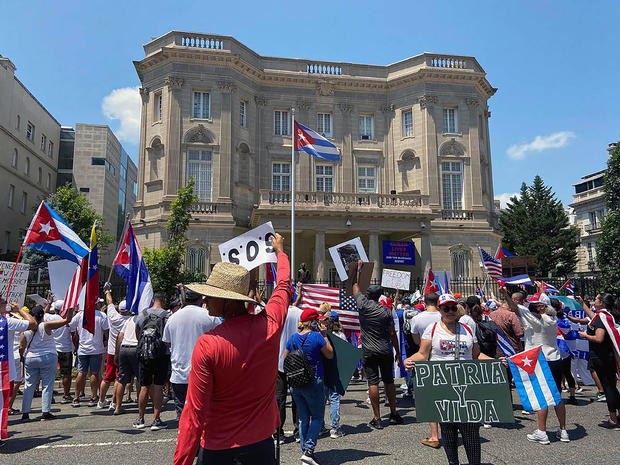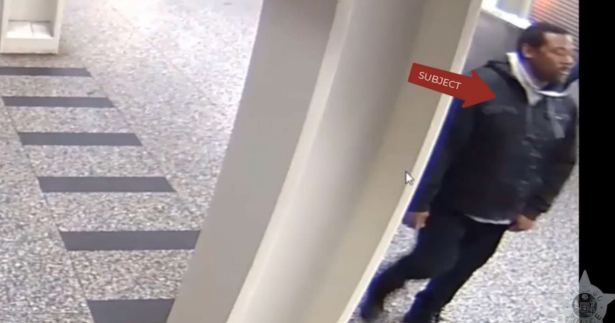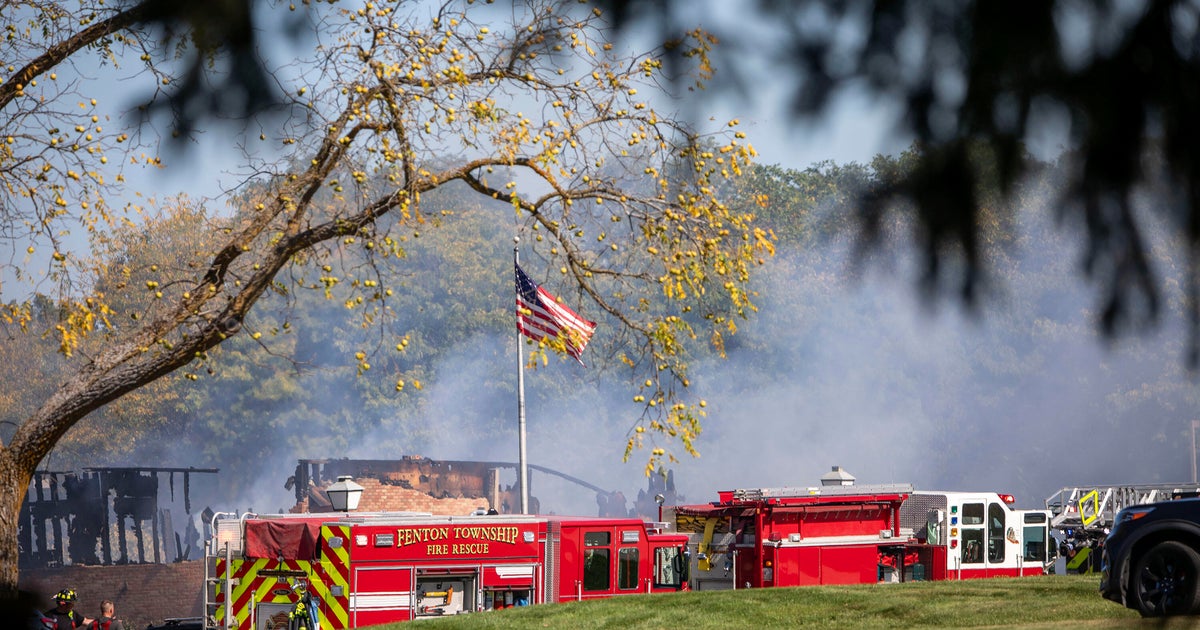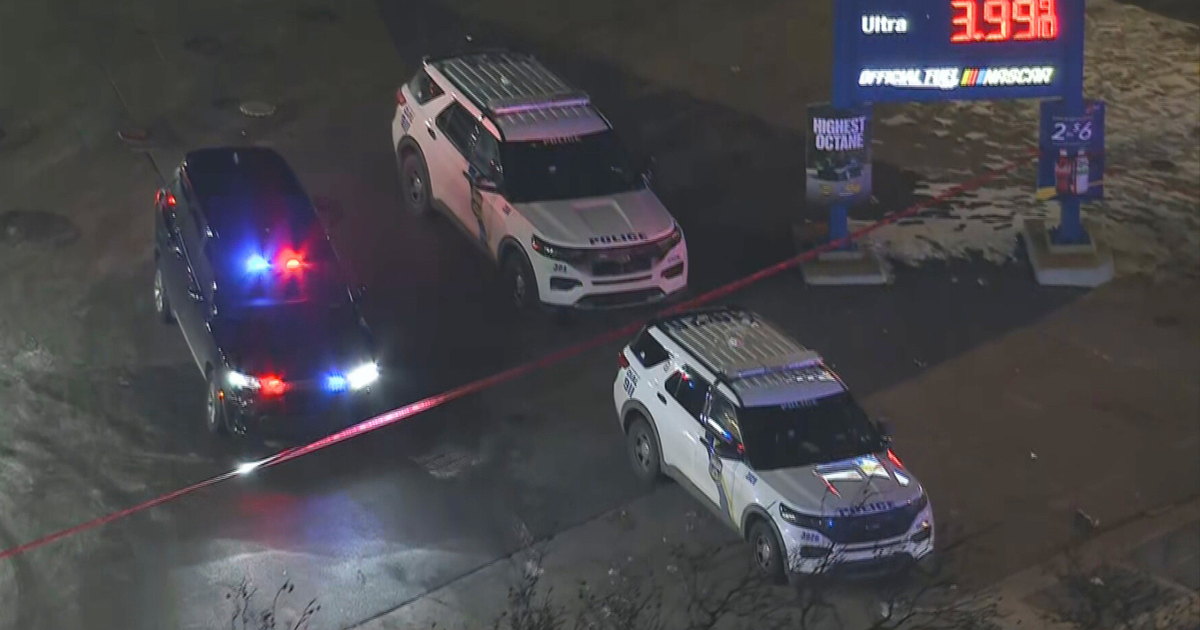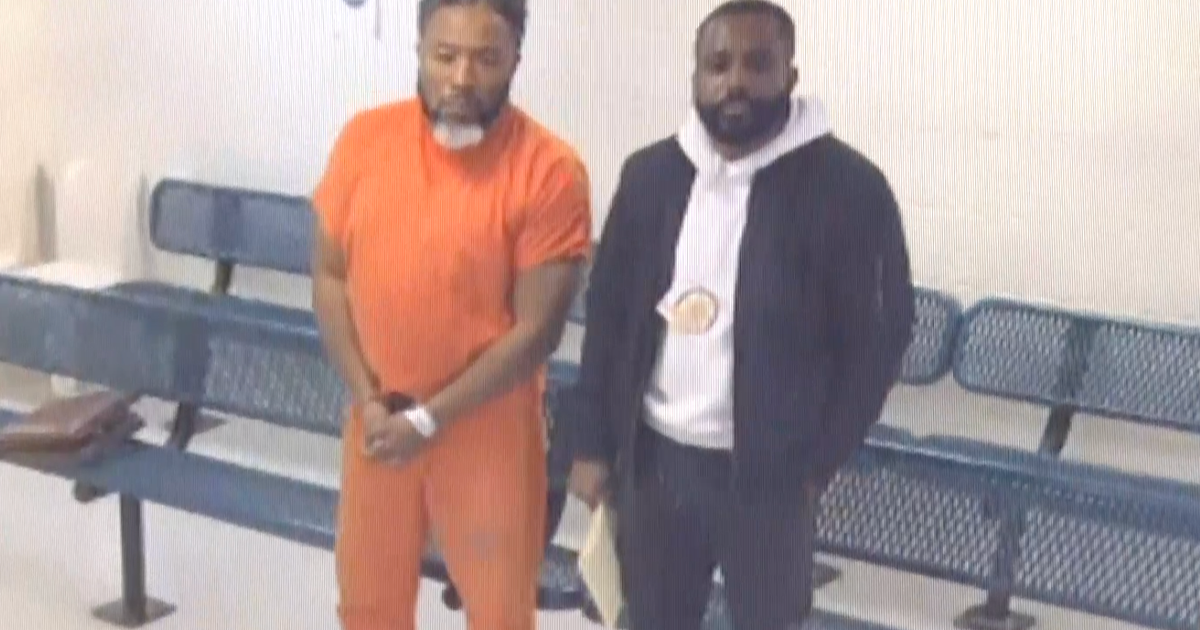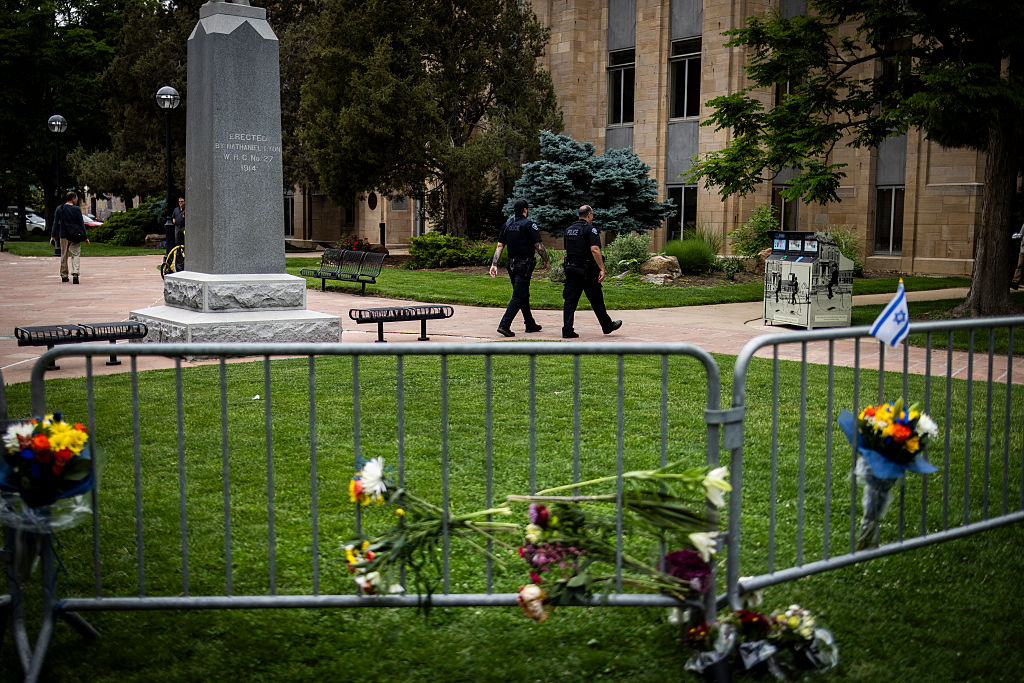Cuba denounces attack on its U.S. embassy as terrorism
The U.S. on Monday condemned an attack on Cuba's embassy in Washington, in which a man allegedly threw two Molotov cocktails at the mission.
Cuba described the incident Sunday night as a "terrorist attack." No one was injured.
"This is the second violent attack against #Cuba's diplomatic mission," Bruno Rodríguez Parrilla, Cuba's Foreign Minister, wrote on social media, referring to an incident in April 2020 in which a man opened fire on the building. There were no injuries from that attack either.
Cuban President Miguel Díaz-Canel Bermúdez also called the incident a "terrorist attack," adding on social media that it was an "act of violence and impotence that could have cost valuable lives. We denounce it and await action from the North American authorities."
State Department spokesman Matthew Miller on Monday said the U.S. was in touch with the Cuban embassy and was committed to the safety and security of diplomatic facilities and personnel.
"Attacks and threats against diplomatic facilities are unacceptable," Miller said. When asked if he suspected terrorism, Miller said that "it would be inappropriate to speculate on motives" while the investigation is ongoing.
He said the State Department was coordinating with Washington police in the investigation.
A law enforcement source told CBS News that two incendiary devices were found that could correctly be described as Molotov cocktails. The devices were not very complex and likely did not explode at all, the source said. The U.S. Secret Service is currently leading the investigation.
Cuban Ambassador Lianys Torres Rivera said the embassy had "immediately communicated with United States authorities, who were given access to the mission to take samples of the Molotov cocktails."
The attack took place hours after President Díaz-Canel returned to Havana after attending the United Nations General Assembly in New York.
In New York, Cubans demonstrated against Díaz-Canel's presence at the U.N., according to posts and videos shared on social media.
"The anti-Cuban groups resort to terrorism when feeling they enjoy impunity, something that Cuba has repeatedly warned the U.S. authorities about," the Cuban foreign minister said after Sunday's attack.
After the April 2020 shooting, the Cuban foreign minister summoned the then-US charge d'affaires in Havana, Mara Tekach, to express his "energetic protest" over what he called a "terrorist aggression" against the embassy.
That shooting left bullet holes in exterior walls and columns, broke a street lamp and damaged several panes of glass and moldings on the front of the building.
U.S. authorities arrested Alexander Alazo over the shooting, charging him with multiple offenses including "a violent attack on a foreign official or official premises using a deadly weapon," according to the Justice Department.
The Cuban embassy reopened as a full mission after former President Barack Obama reestablished official diplomatic ties with Havana.
